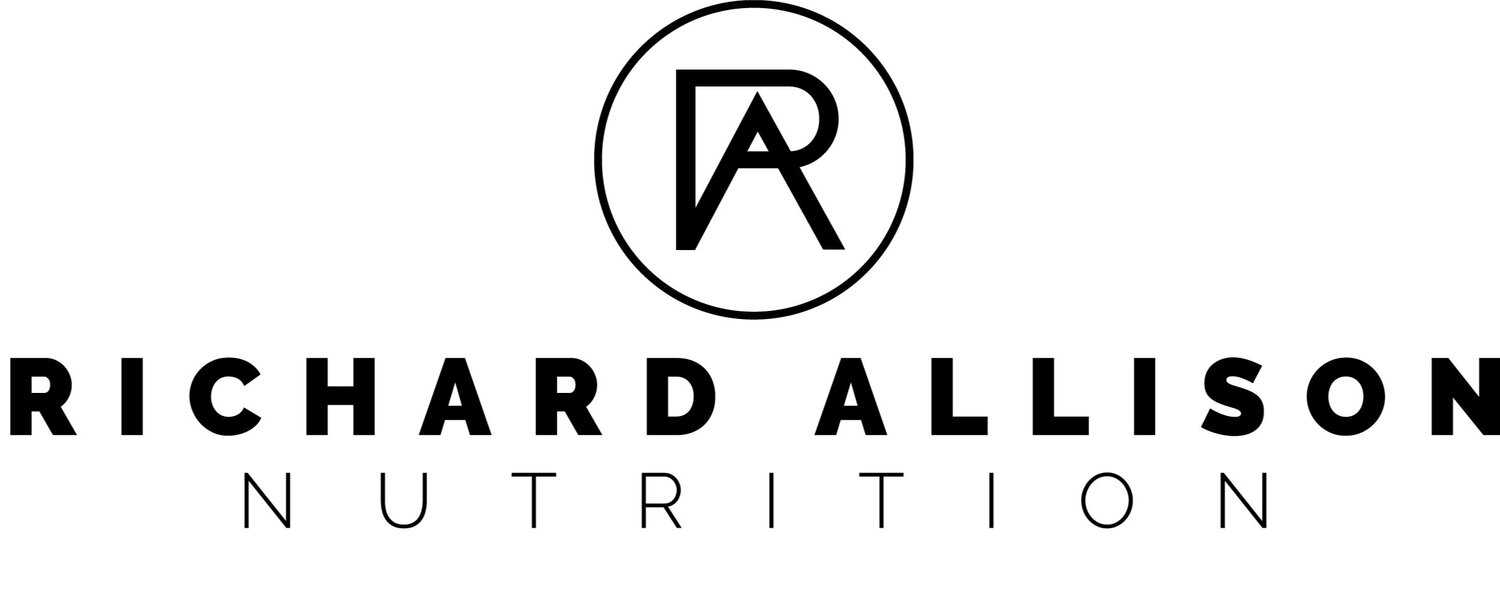Should Everyone Take Creatine?
What is Creatine?
Creatine is one of the most popular nutritional ergogenic aids, with decades of research supporting its use in athletic populations. Recent studies also indicate that creatine may have potential benefits for other groups. Despite the body of peer-reviewed evidence I still receive questions about its efficacy and safety. Broadly speaking many people may benefit from including creatine in their daily nutritional regimen, but let’s look a little closer at the justification for the use of creatine and things people should consider.
So, what exactly is creatine? Creatine is a naturally occurring non-protein amino acid, produced in the body using the amino acids arginine, glycine, and methionine in the liver and brain. It can also be obtained from the diet, primarily through red meat and seafood.
Most creatine is stored in skeletal muscle (~95%), with smaller quantities in the brain and testes (~5%) [1, 2]. About two-thirds of intramuscular creatine is in the form of phosphocreatine (PCr), with the remainder as free creatine. In a 70 kg individual, the total creatine pool in muscle is about 120 mmol/kg of dry muscle mass, though storage capacity can reach up to 160 mmol/kg in some cases [3,4]. Around 1–2% of intramuscular creatine is broken down into creatinine, a byproduct, and excreted via urine [3,5,6]. Therefore, about 1–3 grams of creatine need to be replenished daily, either from dietary sources (e.g., 1 kg of meat contains around 5 grams of creatine) or supplements like creatine monohydrate.
Skeletal muscle itself doesn't produce creatine but holds 95% of the body's creatine content. In cells, creatine binds with phosphate to form phosphocreatine (PCr). It is then converted non-enzymatically into creatinine and excreted in urine. Creatine is essential for maintaining the ATP/ADP ratio, aiding rapid energy replenishment during high-intensity activities.
Body Composition and Strength
Creatine is well-established for enhancing muscle mass and strength, particularly during resistance training. Research shows that creatine supplementation can increase body weight due to increased water retention in muscles, leading to improved strength and power output. A typical dose of 3–5 grams per day of creatine monohydrate can raise body creatine levels by up to 30%.
Power Sports
Creatine is particularly effective for strength and power sports, where performance demands are short bursts of high-intensity effort lasting less than 30 seconds. It is beneficial for events such as weightlifting, powerlifting, sprinting, and short-distance swimming, where increased muscle mass and power output outweigh the minor weight gain associated with creatine use [7].
Impact on Intermittent Sports
Creatine is also advantageous for intermittent high-intensity sports, such as football, rugby, or basketball, where rapid recovery between bursts of intense activity is crucial. Studies have demonstrated that creatine can improve repeated sprint speed, jump height, and other performance metrics relevant to these sports. However, effects seen in sport-specific studies are often less pronounced than those in lab conditions [8,9].
Impact on Endurance Sports
The benefits of creatine for endurance sports are less clear. Creatine tends to show limited effects in sports with prolonged exercise duration, with most studies indicating no substantial benefits for endurance activities. Additionally, the increase in body weight can be a disadvantage for endurance athletes, where excess weight can hinder performance [10-12]. Some lab-based research suggests that creatine might help in scenarios requiring sudden bursts of power, such as sprint finishes or uphill climbs, but the weight gain may negate any advantages in pure endurance events [13, 14].
Brain Function and Use in Older People, Including Sarcopenia
As we age, there is a natural decline in muscle strength, lean tissue mass, and overall physical function—a condition known as sarcopenia. This decline is also associated with reduced bone mass and cognitive function [15, 16]. Creatine has been proposed as a potential intervention to combat sarcopenia, particularly when combined with resistance training.
In older adults, creatine supplementation has shown positive effects on lean tissue mass and muscle performance, with increases in lean mass averaging around 1.4 kg when combined with resistance training over time [15]. While evidence for creatine’s standalone impact on muscle mass in older populations is limited, it appears to enhance muscle density and reduce fat mass when paired with structured exercise regimens [16-18]. Muscle density is a crucial factor for preventing falls and maintaining independence in older age.
Research is also beginning to explore the impact of creatine on cognitive function, with emerging evidence suggesting improvements in memory and cognition in older adults [19].
Bone Health
Creatine plays a role in bone health by influencing bone energy metabolism and osteoblast activity, which are essential for bone formation [20]. Some studies suggest that creatine supplementation, combined with resistance training, may improve lower-body bone strength in older adults. However, most research has found no substantial long-term benefits for bone mineral density [21].
Potential Side Effects and Other Considerations
Creatine is one of the most researched supplements, with a strong safety profile for healthy individuals. The most commonly reported side effect is mild weight gain due to water retention in the muscle. Other potential side effects, such as mild stomach discomfort, usually occur with large doses. Despite some anecdotal concerns about links to hair loss or kidney function, research does not support these claims [22].
Overall, creatine is generally safe when taken in recommended doses (3–5 grams per day). However, those with pre-existing medical conditions, particularly kidney issues, should consult a healthcare professional before starting supplementation.
Considerations for Different Groups:
Vegetarians and Vegans: Creatine can be particularly beneficial for those who do not consume meat, as their natural creatine stores are often lower.
General Fitness Enthusiasts: While creatine is not essential, it can enhance muscle growth and strength gains for those who regularly engage in resistance training.
People with Medical Conditions: Those with kidney disease or other health concerns should seek medical advice before starting creatine supplementation.
Children and Adolescents: Creatine is not generally recommended for young people unless specifically advised by a healthcare professional.
Conclusion
Creatine is a well-validated supplement for enhancing performance in strength, power, and intermittent sports. It also shows promise for countering age-related declines in muscle and cognitive function. While it may not be universally beneficial, particularly in endurance sports, creatine remains a valuable tool for many individuals seeking to improve physical performance and maintain functional health.
Please reach out if you would like further information on whether creatine is right for you.
References
1. Buford TW, et al. International Society of Sports Nutrition position stand: creatine supplementation and exercise. J Int Soc Sports Nutr. 2007;4:6.
2. Kreider RB, Jung YP. Creatine supplementation in exercise, sport, and medicine. J Exerc Nutr Biochem. 2011;15(2):53–69.
3. Hultman E, et al. Muscle creatine loading in men. J Appl Physiol (1985). 1996;81(1):232–7.
4. Green AL, et al. Carbohydrate ingestion augments skeletal muscle creatine accumulation during creatine supplementation in humans. Am J Physiol. 1996;271(5 Pt 1):E821–6.
5. Balsom PD, Soderlund K, Ekblom B. Creatine in humans with special reference to creatine supplementation. Sports Med. 1994;18(4):268–80. 10.
6. Harris RC, Soderlund K, Hultman E. Elevation of creatine in resting and exercised muscle of normal subjects by creatine supplementation. Clin Sci (Lond). 1992;83(3):367–74.
7. Butts J, Jacobs B, Silvis M. Creatine Use in Sports. Sports Health: A Multidisciplinary Approach. 10(1):31-4, 2018.
8. Jäger R, Purpura M, Shao D, et al. Analysis of the efficacy, safety, and regulatory status of novel forms of creatine. Amino Acids. 40(5):1369-83, 2011.
9. Ramírez-Campillo R, González-Jurado JA, Martínez C, et al. Effects of plyometric training and creatine supplementation on maximal-intensity exercise and endurance in female soccer players. J Sci Med Sport. 19(8):682-7, 2016.
10. van Loon LJ, Oosterlaar A, Hartgens F, et al. Effects of creatine loading and prolonged creatine supplementation on body composition, fuel selection, sprint and endurance performance in humans. Clin Sci. 104(2):153-62, 2003.
11. Cooper R, Naclerio F, Allgrove J, Jiminez A. Creatine supplementation with specific view to exercise/sports performance: an update. J Int Soc Sports Nutr. 9(1):33, 2012.
12. Van Schuylenbergh R, Van Leemputte M, Hespel P. Effects of oral creatine-pyruvate supplementation in cycling performance. Int J Sports Med. 24(2):144-50, 2003.
13. Murphy A, Watsford M, Coutts AJ, Richards D. Effects of creatine supplementation on aerobic power and cardiovascular structure and function. J Sci Med Sport. 8(3):305-13, 2005.
14. Kilduff L, Gerogiades E, James N, et al. The effects of creatine supplementation on cardiovascular, metabolic, and thermoregulatory responses during exercise in the heat in endurance-trained humans. Int J Sport Nutr Exerc Metab. 14(4):443-60, 2004.
15. Kirk B, Phu S, Brennan-Olsen SL, et al. Associations between osteoporosis, the severity of sarcopenia and fragility fractures in community-dwelling older adults. Eur Geriatr Med. 2020;11:443–50.
16. Arosio B, Calvani R, Ferri E, et al. Sarcopenia and Cognitive Decline in Older Adults: Targeting the Muscle-Brain Axis. Nutrients. 2023;15:1853.
17. Wyss M, Kaddurah-Daouk R. Creatine and creatinine metabolism. Physiol Rev. 2000; 80:1107-1213.
18. Chilibeck PD, Kaviani M, Candow DG, Zello GA. Effect of creatine supplementation during resistance training on lean tissue mass and muscular strength in older adults: a meta-analysis. Open Access J Sports Med. 2017; 8:213-26.
19. Candow DG, Forbes SC, Ostojic SM, Prokopidis K, Stock MS, Harmon KK, et al. “Heads-Up” for Creatine Supplementation and Its Potential Applications for Brain Health and Function. Sports Med. 2023;53:49-65.
20. Wallimann T, Hemmer W. Creatine kinase in non-muscle tissues and cells. Mol Cell Biochem. 1994;133-134:193–220.
21. Candow DG, Chilibeck PD, Forbes SC, Fairman CM, Gualano B, Roschel H. Creatine supplementation for older adults: Focus on sarcopenia, osteoporosis, frailty and cachexia. Bone. 2022;162:116467.
22. Kreider RB, Kalman DS, Antonio J, Ziegenfuss TN, Wildman R, Collins R, Candow DG, Kleiner SM, Almada AL, Lopez HL. International Society of Sports Nutrition position stand: safety and efficacy of creatine supplementation in exercise, sport, and medicine. J Int Soc Sports Nutr. 14:18, 2017


